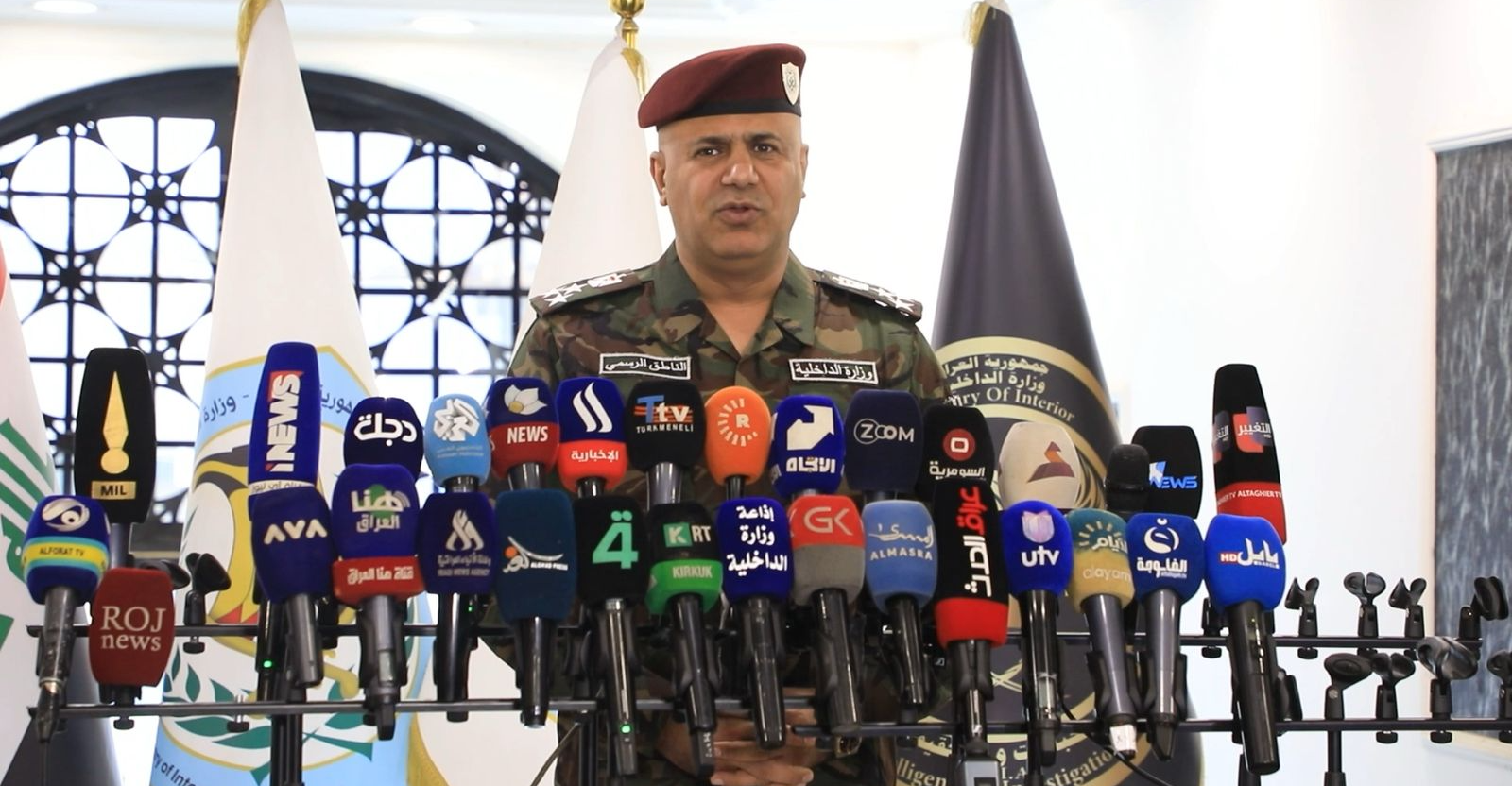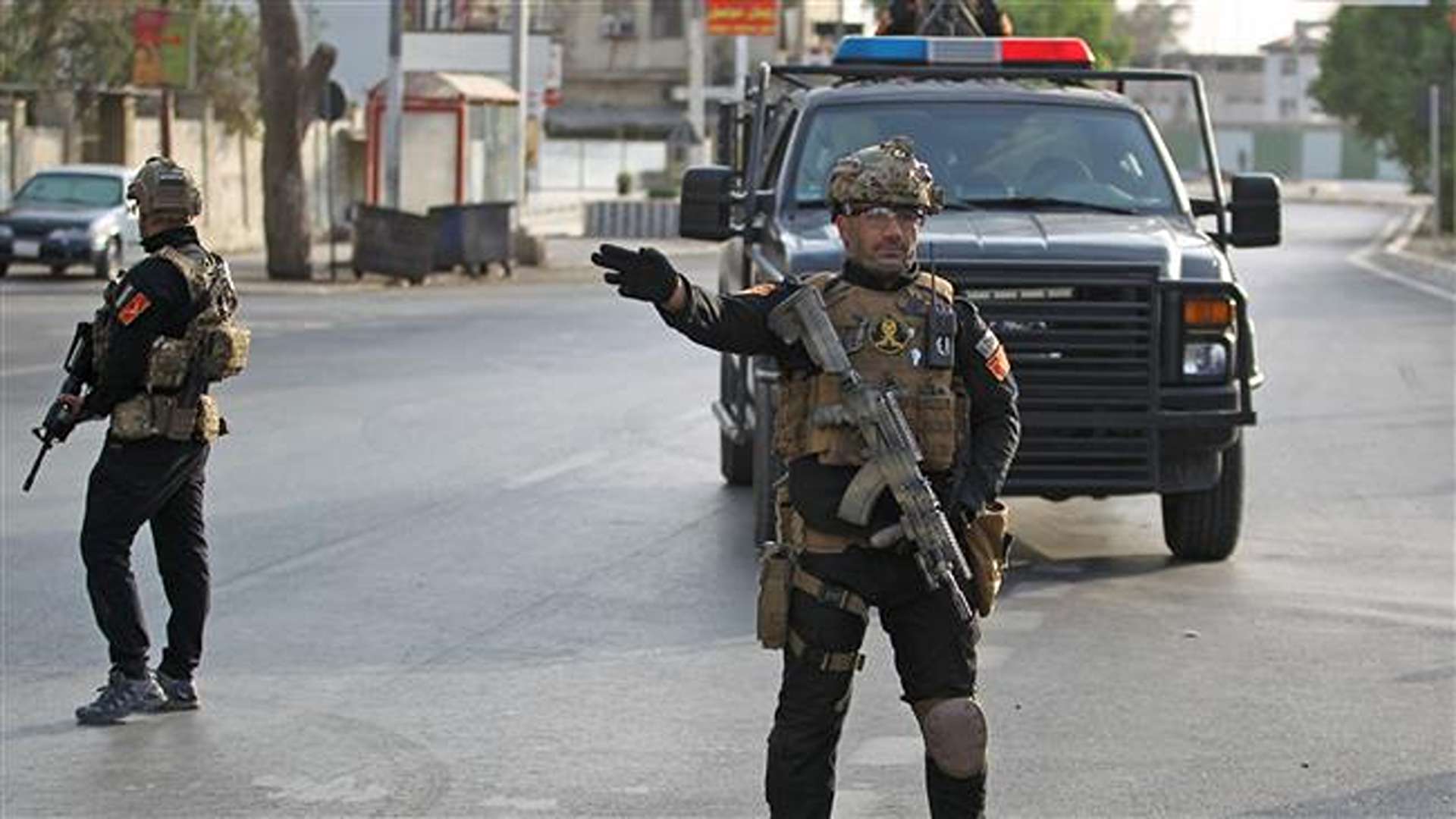Iraq’s Sectarian Lens Fuels Crackdown on Dissent and Syrian Refugees

The security authorities and militias arrested and brutalized Syrian refugees in Iraq.
The recent events on Syria’s coast have cast a shadow over Iraq, as Iran-aligned factions escalate sectarian rhetoric in response to developments under President Ahmed al-Sharaa’s new administration.
Amid Iran’s deep influence in Iraq, security forces have launched a wave of arrests and crackdowns targeting both Syrians and Iraqis who have expressed support for Syria’s new government.
The crackdown followed the deadly ambush on March 6, 2025, in which remnants of Assad’s regime killed around 200 security personnel, triggering fierce clashes.
Amid the fighting, Alawite civilians faced abuses—a fact acknowledged by President al-Sharaa, who ordered an urgent investigation and vowed to hold those responsible to account.
Sectarian Persecution
On social media, supporters of the Iran-aligned Shiite Coordination Framework launched a sectarian campaign targeting those expressing solidarity with Syria’s security forces and the new administration. They shared security hotlines, urging followers to report alleged “terrorist sympathizers.”
Iraqi and Syrian accounts praising President al-Sharaa for resisting al-Assad regime remnants were publicly exposed, accused of backing terrorism and siding with those responsible for Alawite civilian deaths.
Ahmed al-Thawaq, a militia-affiliated activist loyal to Iran, posted on X on March 9 to call for the expulsion of Syrians from Iraq, claiming that “the majority have revealed their true colors as supporters of al-Jolani (Ahmed al-Sharaa).”
He declared their presence “unwelcome” and bluntly told them: “Leave willingly before you are forced out.”
In a similar vein, pro-Coordination Framework journalist Issam Hussein wrote on X on March 11 that "#Deporting_Syrians_is_a_security_demand," arguing that they “support the killing of innocent Alawites in Latakia.”
Hussein went on to claim that “some Syrian workers in Iraq have expressed support for genocide,” adding that security forces had arrested a group of these alleged “promoters of terrorism and murder.” He urged Iraqis to back their expulsion if they failed to respect the country’s security and laws.
He further asserted that “global fears are mounting over Jolani’s supporters” following the circulation of harrowing massacre images on social media, which, he said, had sparked international sympathy for Alawites and calls to protect them from those who “call themselves Ahl al-Sunna wal-Jama’a [Sunni Muslims].”
He claimed that “people in Egypt, Iraq, Europe, and across the world are gripped by anxiety over the situation in Syria and the presence of refugees who support Jolani and condone the extermination of Alawites.”
According to him, these populations fear that their countries are harboring “ticking time bombs” that could detonate at any moment, triggering security chaos or leaving innocent victims in their wake.
But the story did not end there. In Iraq, a group calling itself the "Ya Ali Popular Brigade" emerged, vowing to hunt down, assault, and intimidate Syrians in the country. The group accused the Iraqi government of being too lenient with Syrian refugees, claiming it was “appeasing them despite their support for the killing of Alawites.”
On March 11, the group released a video showing its members storming a bakery in Najaf where Syrian workers were employed. After forcibly searching their phones, they proceeded to beat them and ransack the premises.
Systematic Repression
At the onset of the “coastal crisis,” Iraq’s Foreign Ministry issued a statement describing the situation as a conflict between different factions, calling for restraint, dialogue, and a peaceful resolution instead of further military escalation—an approach that drew domestic criticism.
Dhafer Alani, a former member of Iraq’s parliamentary foreign relations committee, criticized the statement, saying, “The Iraqi Foreign Ministry’s response to the events in Syria was, unfortunately, deeply disappointing.”
Writing on X, he argued that the statement “equated Syrian government and non-government factions, as well as official and unofficial armed groups, referring to them simply as ‘parties to the conflict’ without distinguishing between what is legitimate and what is not.”
The Iraqi politician stressed that “a government statement should not have fallen into such ambiguity, as it signals a lack of goodwill toward a neighboring Arab country at a time when it most needs support for its stability and the sovereignty of its institutions.”
Iraqi security forces launched a series of raids and arrests targeting numerous Syrian refugees across the country, following a wave of reports filed by pro-Iran factions.
However, after the emergence of the "Ya Ali Popular Group," Syria’s Foreign Ministry voiced its anger, calling on the Iraqi government on March 12 to ensure the safety of Syrian nationals.
Later, the office of Iraqi Prime Minister Mohammed Shia’ al-Sudani issued a statement condemning the incidents as “disgraceful acts” against “a number of Syrian brothers working in Iraq.”
Military spokesperson Sabah al-Naaman announced on March 12 that the prime minister had immediately ordered the formation of a specialized security team to track down those responsible for these unlawful actions, which he said were entirely inconsistent with Iraqi values.
He added that "these acts are legally condemned assaults that violate all humanitarian and ethical values, constituting an affront to human dignity and rights."
Emphasizing the deep ties between the Iraqi and Syrian peoples, he affirmed that the law would be fully enforced against anyone found guilty of carrying out these attacks.
Hours later, Iraq’s Interior Ministry issued a statement acknowledging that its security and intelligence agencies had recorded several unlawful incidents with sectarian undertones, involving some—though not all—of the country’s foreign residents.
It added, “Such actions are entirely unacceptable and must be rejected in full. Those residing on Iraqi soil are expected to respect the nation’s laws, values, and traditions, which are deeply ingrained in our people.”
Iraq’s Interior Ministry warned that “anyone who oversteps the bounds of Iraqi law, engages in actions that make them liable for prosecution, or spreads information that offends the values of our society” will face deportation.

Sectarian Crackdown
Commenting on Iraq’s official stance toward the unfolding events in Syria, political analyst Hamed al-Abidi argued that “Iraqi authorities approach both domestic and foreign affairs through a purely sectarian lens.”
Speaking to Al-Estiklal, he described Iraq’s leadership and Iran-backed parties as “an anomaly in the region, with parallels only in Iran, Lebanon, and Yemen.”
“In contrast, other countries have refrained from meddling in Syrian affairs, standing by the authorities without fueling sectarian tensions or exploiting the situation for political or ideological gain,” al-Abidi noted.
He further pointed out that “Iraqi government institutions have begun cracking down on employees who post or comment in ways that contradict the narratives pushed by Iran’s allies.”
He noted that the narrative being pushed is that “what is happening in the Syrian coast is a genocide against Alawites, rather than clashes with remnants of Bashar al-Assad’s regime, accompanied by some violations.”

The researcher pointed out that “several ministries, particularly the Ministry of Higher Education led by Minister Naeem al-Aboudi, who heads the political bureau of the Asa'ib Ahl al-Haq militia [the Khazali Network], have begun punishing employees who post comments or social media posts about Syria that contradict the stance of Iran-aligned factions.”
He argued that “Iraqi authorities have yet to free themselves from Iranian influence in both their actions and statements—whether in the form of the Foreign Ministry’s statement or the arrests targeting Syrian refugees who expressed support for their president, Ahmed al-Sharaa, which should be considered a normal expression of opinion.”
In the same vein, Iraqi politician Mishaan al-Jabouri stated during a television interview on March 12 that “when Iraqis sought refuge in Syria or other countries due to sectarian violence between 2006 and 2008, they openly criticized the Iraqi authorities—yet no one arrested them.”
Al-Jabouri stressed that freedom of expression should be guaranteed for both Syrians and Iraqis in Iraq, and no one has the right to suppress it. He emphasized that the current Syrian leadership under Ahmed al-Sharaa is a reality that must be acknowledged and engaged with.
At the same time, Iraqi social media users warned of the dangers of mistreating Syrian refugees, cautioning that Syria might reciprocate in kind should Iraqis travel there to visit Shiite shrines—risking further deepening the crisis between the two nations.










